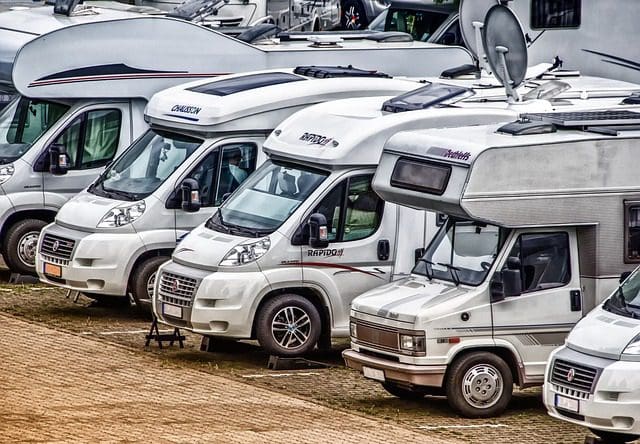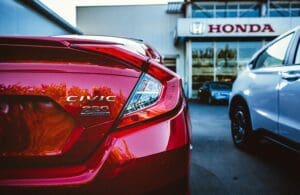Did you know that 11% of US households own a recreational vehicle?
A camper van is a significant investment. You’ll spend more time outdoors and enjoy an active lifestyle.
Camping provides time with your family and makes memories that’ll last a lifetime. The demand is so high a camper van is the fastest-growing category of RVs.
According to an expert Arlington RV dealer, beforemaking an enormous buy, remember these familiar camper van buying errors. Check out our easy guide to avoid beginner mistakes.
1. Ignoring the Basics
Ignoring the basics when buying a camper van is one of the most common errors. It’s easy to get excited and overlook simple yet critical aspects of the process.
Before taking the plunge and purchasing a van, take the time to research and decide the specific components needed for the camper van you want. Consider the following:
Size and Power of the Engine
It is essential to know how much space is needed for sleeping and storage and to buy a vehicle that suits those requirements. Furthermore, the engine must have enough power to handle mountain passes or steep inclines.
To ensure the correct size is purchased, research the models online and check the dimensions and weight of each van. Additionally, compare the engine types and power ratings of available options and ask the salesperson any questions.
Type of Interior
It is essential to consider the materials that make up the interior space. They may break down over time if not of high quality, making the van uninhabitable.
Make sure to inspect the interior before purchasing, and find out what kind of materials and features are available. An interior with good insulation, heat, and ventilation can create a more pleasant camping experience.
Level of Insulation
This is critical to a successful camper van since it allows for a more comfortable and enjoyable experience. To ensure proper insulation is obtained, research the various types available. There are multiple materials, styles, and levels of insulation that all work differently in different climates.
Along with researching the types, consider where the van will be used and the climate conditions that will be encountered. Poor insulation installation can drastically affect the quality of the insulation and, ultimately, the level of comfort in the van.
Heating and Cooling Systems
Make sure to research the ideal temperature ranges for the areas you plan to explore. Investing in a unit with a robust cooling system is also essential so your interior stays comfortable in higher temperatures. You should also account for wind chills and other outside elements when picking up your heating system.
Invest in a powerful heating system unit to remain warm and comfortable when the temperatures drop. Finally, consider any additional season-specific accessories you may need, such as propane heating and portable air conditioners.
Level of Security
Investing in a good quality motorized vehicle with an immobilizer system can also give an extra layer of security. Fitting a van alarm with a tracking device dramatically reduces theft risk, adding peace of mind. All of these solutions are cost-effective and worth the added expense.
2. Not Accounting for Storage Capabilities

Assess how much storage space you need before you buy the van. You must also decide if the vehicle will provide the necessary storage solutions. If buyers don’t assess what they need to store in the truck, they may be disappointed when they realize they can’t fit all their belongings.
Investing in multi-functional storage solutions can also help maximize space. Consider incorporating shelves and other hanging storage solutions to increase storage capacity. Additionally, rent different makes and models of camper vans to understand their area and how they can be utilized.
Assess the ability to add storage solutions such as bike and kayak holders. Doing this research can help buyers find the best camper for their needs.
3. Underestimating Maintenance and Repair Costs
Anyone buying a new or old vehicle must always consider maintenance and repair costs. It’s good practice to know what and how a vehicle will be years after it has been purchased.
Obtain several written estimates from a reputable service center. It is to understand any future repair costs associated with the vehicle. Consider the camper van’s projected lifespan and any additional services or repairs necessary beyond the first buy.
Take time to understand the expected camper van maintenance and repair costs. This can save major headaches and save a significant amount of money in the end.
4. Not Considering Road Conditions
Roadways that seem straightforward in a mild climate may have significant impacts when traversing a winter wonderland or rugged terrain. Not doing so may result in a vehicle that cannot handle the journey. Make sure to consider the suspension of the van, speed capabilities, and the tires for their suitability for the roads.
Doing so can save money and time in the long run and provide a more enjoyable camping experience. Additionally, be sure to research what weatherproofing is needed for protection against the elements, such as:
Aerodynamic Components
It would be best to double-check to ensure your camper van’s aerodynamics is up to snuff. Poor aerodynamics can create drag, leading to lower fuel economy, increased noise, and less handling. To ensure the best aerodynamic performance, you can ensure the side and front panels are well insulated.
Ensure there are no gaps in the seams, and look for additional insulation for panels and windows. Be sure to check the design and layout of the camper van, as the form can affect aerodynamic performance. If buying pre-owned, inspect the van thoroughly to ensure no needless components compromise the aerodynamics.
Heated Components
Poorly-maintained heating, cooling, and ventilation systems in campervans can be a source of expensive and potentially dangerous problems. To prevent these issues, it is essential to inspect Campervan’s heating components thoroughly before purchasing. Check for signs of previous damage and any material flaws.
Ensure all the electrical connections are working properly and the heating is operating correctly. Ensure that the heating vents or outlets are free of any obstructions or buildup of dust or dirt. Additionally, it is essential to check the fuel or power supply to ensure it is properly connected and working correctly.
Failing to do so could lead to potentially costly repairs or replacements. It is also essential to regularly maintain and clean the heating systems and parts to ensure they are in peak condition.
Winter Tires
Get a tire pressure monitoring system before hitting the road. This way, you can ensure your tire pressure is in the correct range. Four-season tires are ideal for winter climates because they provide more traction in cold temperatures and snow/ice.
Make sure to visually inspect the tires at regular intervals and replace them if they look worn. Get snow chains if necessary in the area you will be traveling. Lastly, check the alignment and balance of the van’s tires before going in the winter to ensure they can provide the best possible safety and performance.
Snow Chains
Snow chains are a critical safety measure when driving in winter conditions. They improve grip, allowing the camper to move more quickly in icy, snowy environments. Failure to get them can lead to dangerous and potentially hazardous situations.
To avoid this error, think ahead and make sure to include buying snow chains in the budget for the camper van. Be sure to purchase the correct type for the vehicle, as compatibility is critical for successful installation and performance.
Additionally, have a professional installer put the chains on to ensure a safe, snug fit. With proper care and maintenance, snow chains can be long-lasting and aid in snowy winter driving conditions.
5. Overlooking Other Important Features
Getting caught up in purchasing the basics, like interior amenities, exterior features, and fuel efficiency, is easy. However, we must not overlook other important features, such as:
- Storage Capacity
- Towing capacity
- Bed size
- Adequate ground clearance
Not checking these features can lead to an underpowered van, small for its intended use or unable to navigate rugged terrain. Pay close attention to whether a particular is made is also essential. This model can be registered and appropriately titled in the buyer’s state.
Researching any potential problem areas in advance can save time and money. Ultimately, checking all essential features can help avoid costly and inconvenient errors when buying a camper van.
6. Not Doing Any Research for the Right Camper Van
Researching online is a great way to assess what camper vans are necessary and within the budget. Additionally, reviews and recommendations from friends and family who purchased a camper van can help narrow down a desired vehicle.
Therefore, we must arrange for a professional evaluation from a reliable mechanic to guarantee that the camper van is in working condition and free of structural damage. As part of the purchase, get complete details about the truck in writing, including any warranties and guarantees.
Finally, be realistic with budgeting. Factor in added expenses, such as insurance, maintenance, taxes, and licenses to determine the cost of ownership over the long term. Following these steps can help avoid unnecessary camper van buying errors.
7. Overlooking Insurance Coverage
Often buyers overlook such crucial steps, leaving them overwhelmed and unprotected if the unexpected should happen. To avoid this common mistake, consider taking the time to research and get insurance quotes before making a purchase. This way, if an unfortunate incident should occur, you can rest assured that you will be covered.
Do your research to get the best plan for both pricing and coverage. Additionally, it may be a good idea to check the company ratings of your insurer and compare quotes. This will prevent common camper van buying errors and help protect your purchase.
8. Neglecting to Read Reviews
When buying a camper van, it is essential to read reviews to avoid any common buying errors. Assessments can provide insight into the camper van’s features, quality, and general satisfaction. Customers who have bought and used the camper are the most reliable source when making your decision.
Neglecting to read reviews can lead to costly buying errors, such as buying a camper van with poor maintenance, inadequate insulation, or outdated technology. Sometimes, the camper van may not suit the buyer’s needs. To avoid these common buying errors, always take the time to read customer reviews to make an informed decision.
Gather as much information as is available and research on your own. Finding what works best for individual needs makes it easier to avoid common buying errors.

9. Not Getting an Inspection
Not getting an inspection can cause many issues from the moment of purchase. It is essential to have an inspection completed by a qualified mechanic to diagnose any potential problems. This will find any underlying issues that may not have been observed during the first purchase.
Issues such as leaky windows, dead batteries, or corrosion could have been identified during an inspection and would have allowed for price negotiation. Furthermore, an assessment can provide information about necessary repairs to ensure the van meets legal and safety standards. Ultimately, an inspection before a purchase can prevent costly repairs.
10. Not Getting an Extended Warranty
Not investing in an extended warranty could leave you out of pocket if something goes wrong and needs repairing. You should always consider the security that a manufacturer or retailer provides. An extended warranty often covers added items that the initial contract may not include.
Another investment tip is to shop around and compare what different providers have on offer before committing. Comparing camper van costs will help you to make the right decision and can help you save money. Furthermore, checking what is covered under your existing auto insurance policy is worth checking.
Ultimately, avoid costly mistakes by constantly researching and ensuring you get the most out of your investment before committing to an extended warranty. If you are looking for a vehicle that is best for traveling, check out this Sprinter camper van.
Be Aware of Camper Van Buying Errors
Avoiding common camper van buying errors is essential for a successful buy. Inspect the vehicle and ask the seller questions before committing to a purchase – this will provide a great camper van. Research thoroughly, ask questions, and use our guide for a safe and enjoyable van-buying experience.
Your perfect camper van is just waiting to be found and enjoyed. Go out and start searching! Don’t forget to check all terms and conditions before signing any paperwork.
If you like this content and want to learn something new, check out the rest of our site.
Featured Image by Tom from Pixabay





